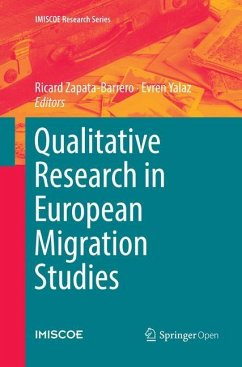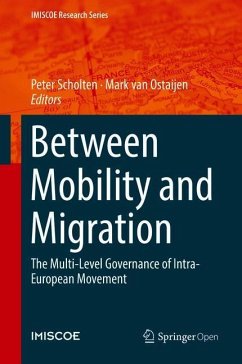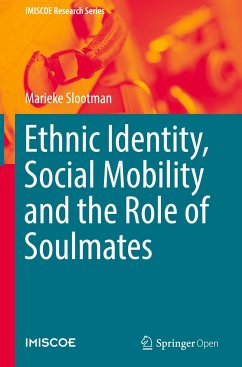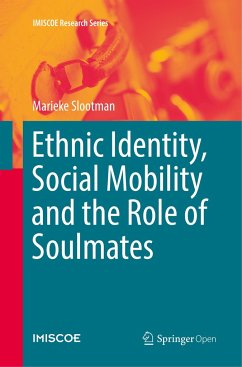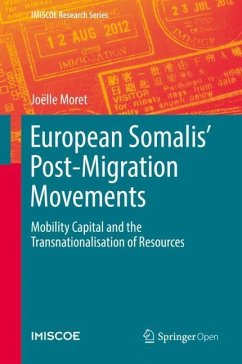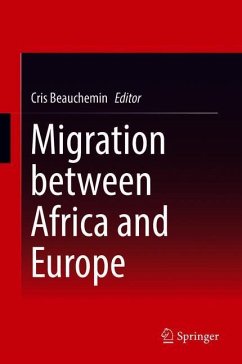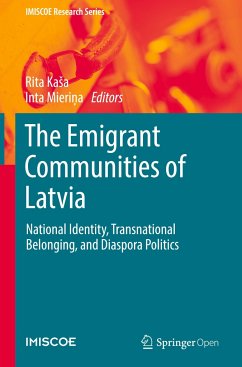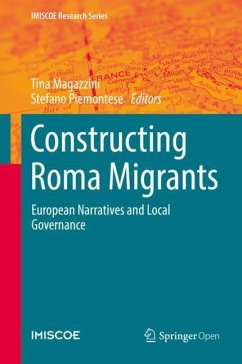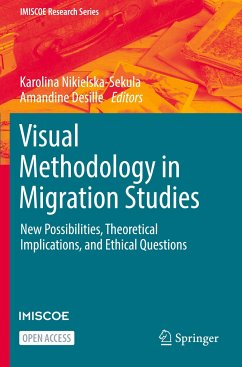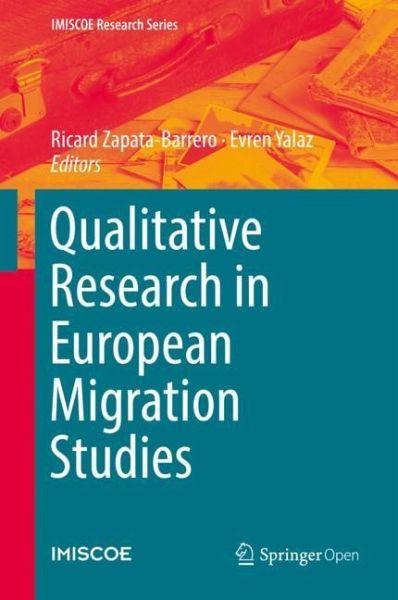
Qualitative Research in European Migration Studies
Versandkostenfrei!
Versandfertig in 6-10 Tagen
38,99 €
inkl. MwSt.

PAYBACK Punkte
19 °P sammeln!
This open access book covers the main issues, challenges and techniques concerning the application of qualitative methodologies to the study of migration. It discusses theoretical, epistemological and empirical questions that must be considered before, during, and after undertaking qualitative research in migration studies. It also covers recent innovative developments and addresses the key issues and major challenges that qualitative migration research may face at different stages i.e. crafting the research questions, defining approaches, developing concepts and theoretical frameworks, mappin...
This open access book covers the main issues, challenges and techniques concerning the application of qualitative methodologies to the study of migration. It discusses theoretical, epistemological and empirical questions that must be considered before, during, and after undertaking qualitative research in migration studies. It also covers recent innovative developments and addresses the key issues and major challenges that qualitative migration research may face at different stages i.e. crafting the research questions, defining approaches, developing concepts and theoretical frameworks, mapping categories, selecting cases, dealing with concerns of self-reflection, collecting and processing empirical evidence through various techniques, including visual data, dealing with ethical issues, and developing policy-research dialogues. Each chapter discusses relative strengths and limitations of qualitative research. The chapters also identify the main drivers for qualitative researchdevelopment in migration studies. It is a unique volume as it brings together a multidisciplinary perspective as well as illustrations of different issues derived from the research experience of the recognized authors. One additional value of this book is its geographic focus on Europe. It seeks to explore theoretical and methodological issues that are raised by distinctive features of the European context. This volume will be a useful reference source for scholars and professionals in migration studies and in social sciences as well. The publication is also addressed to graduate and post-graduate students and, more generally, to those who embark on the task of doing qualitative research for the first time in the field of migration.





